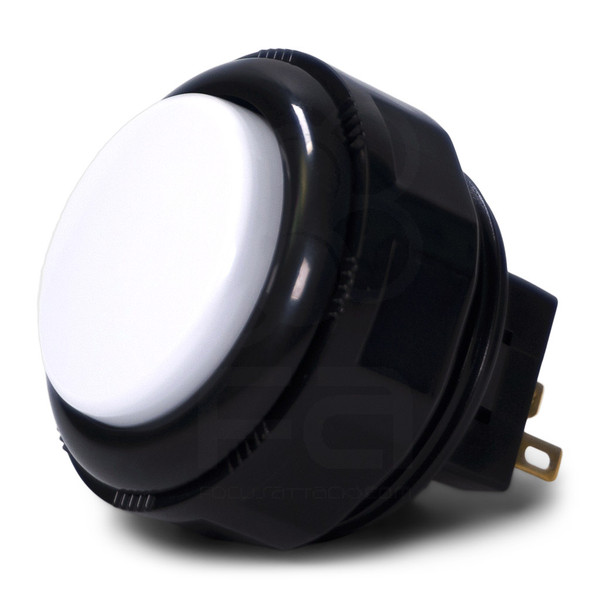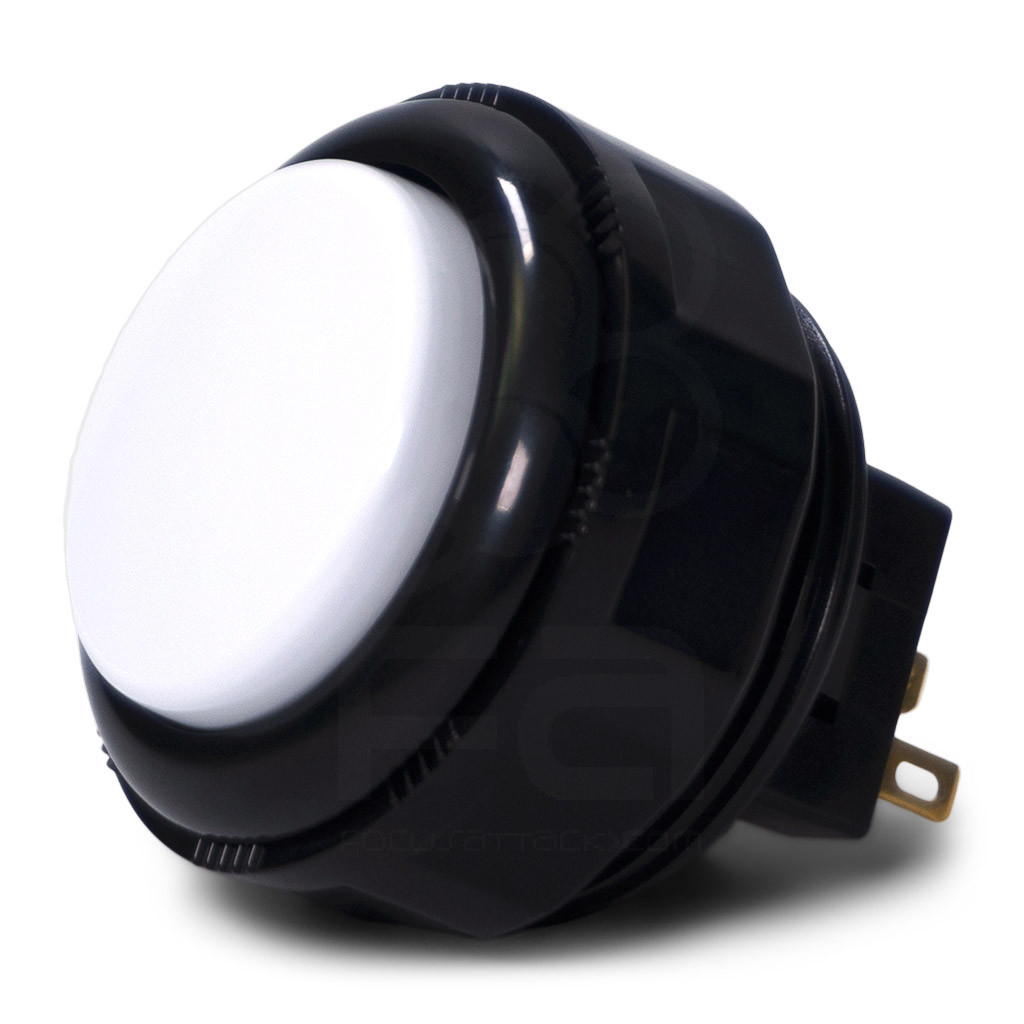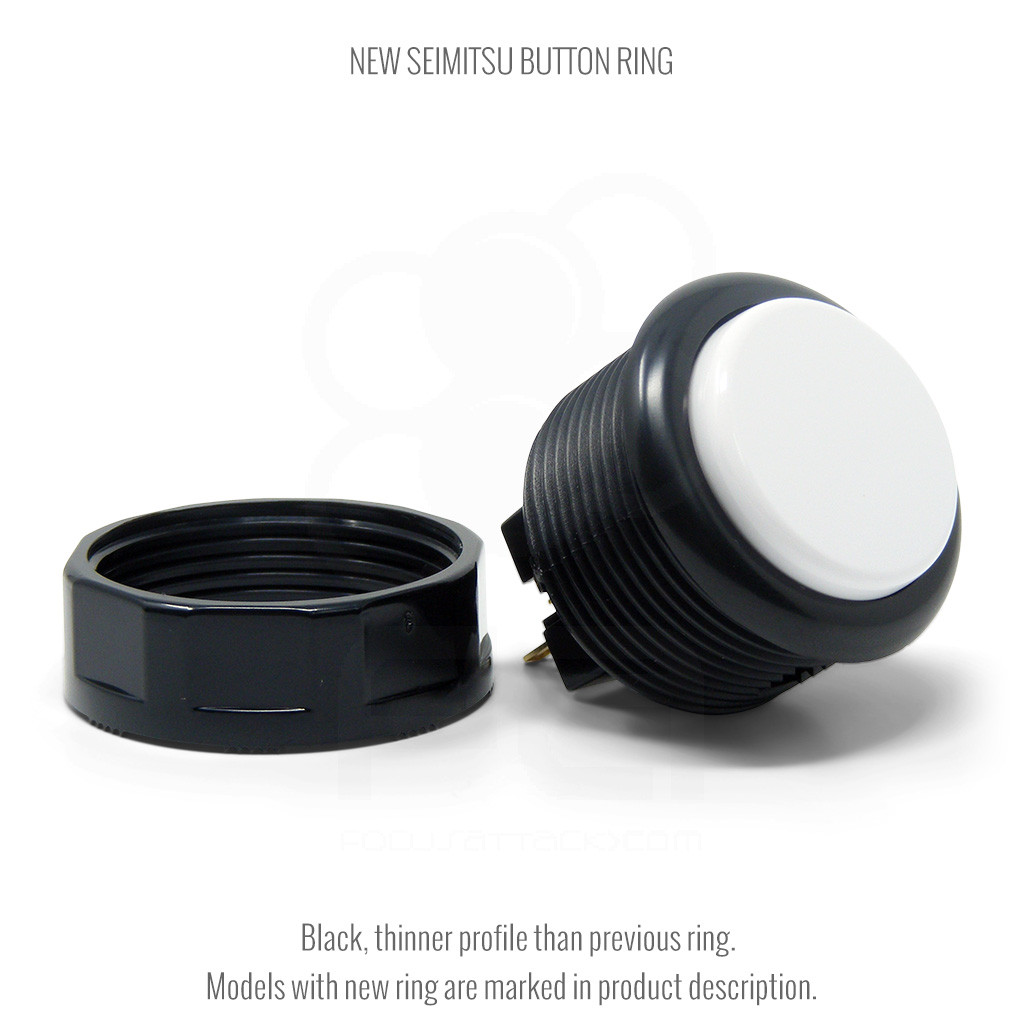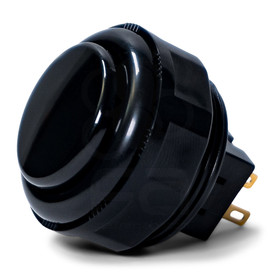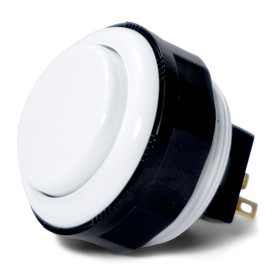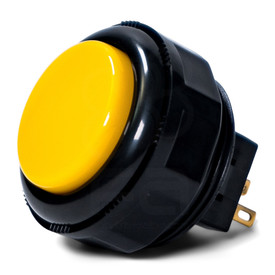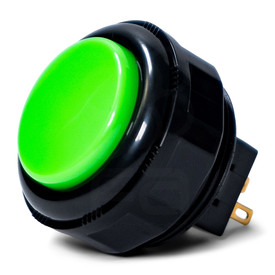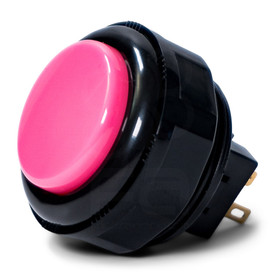- Category
- What's New?
- FightSticks/Pads
- Joysticks
- Pushbuttons
- Spare Parts & Tools
- Hardware & PCB
- Electrical
- Customize
- Merchandise
- Sales & Clearance
- Brand
Seimitsu PS-14-GN Screwbutton White/Black
Sorry but this item is currently unavailable.
Please check back at a later stage.
-
Product Description
Important: New Screwbutton Ring Design
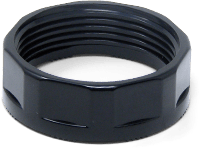 This pushbutton comes with a new screwbutton ring. Seimitsu is replacing its original clear or milky white screwbutton ring with a black plastic alternative. For 30mm, this ring is thinner than the original model, more compact for tight spaces, and easier to screw on or off. For 24mm, the screw ring resembles the original model except in black. Some of our current photos may reflect the older screw ring. Due to the amount of photos needed to replace them, we are temporarily adding a note until new photos can be taken.
This pushbutton comes with a new screwbutton ring. Seimitsu is replacing its original clear or milky white screwbutton ring with a black plastic alternative. For 30mm, this ring is thinner than the original model, more compact for tight spaces, and easier to screw on or off. For 24mm, the screw ring resembles the original model except in black. Some of our current photos may reflect the older screw ring. Due to the amount of photos needed to replace them, we are temporarily adding a note until new photos can be taken.
The Seimitsu PS-14 GN is a solid color 30mm threaded button with screw ring. The PS-GN is often used for arcade cabinets with a thick control panel (15mm or 0.59"), but can also be used in metal panels because of the screw ring. Unlike the PS-14-G snapbutton, the PS-14-GN has a convex plunger. The PS-14 GN uses the Seimitsu PS-14-G Button Micro Switch.
Bundle with MM9-4 High Tension Button Spring and Save
By default, Seimitsu PS-14-G microswitch requires 1.0N or 0.2 LBF (pounds force) to each button.
The MM9-4-25N adds an extra .08 LBF (pounds force), for a total of 0.28 LBF. The result is a light, but firm button input requirement that accelerates its the button cap's return to neutral.
The MM9-4-50N adds an extra .16 LBF (pounds force), for a total of 0.34 LBF, resulting in a much firmer button input requirement that quickly pushes the button cap's to neutral position, ready for the next press.
This is desirable to some who appreciate using more deliberate input force and a bit less sensitivity than Sanwa's SW-68 offers. Now, you can save 25 cents off the regular price of the MM9-4 series spring when you choose one of the high tension springs from the options list.
Bundle with Silencer 30mm Foam Washers
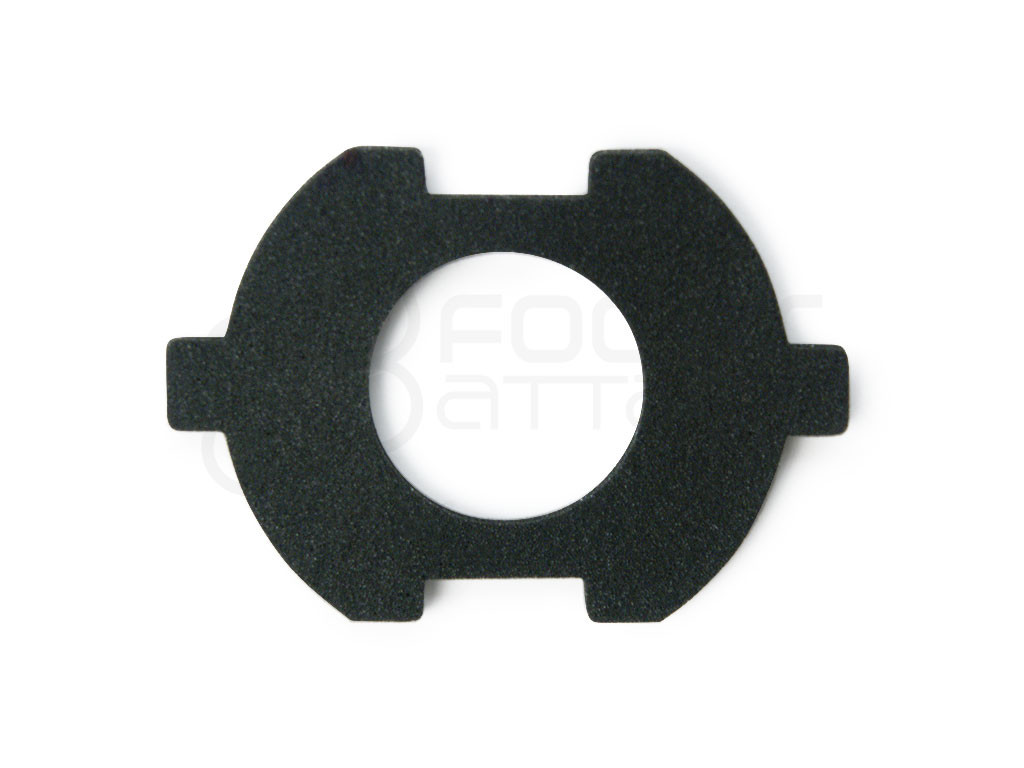
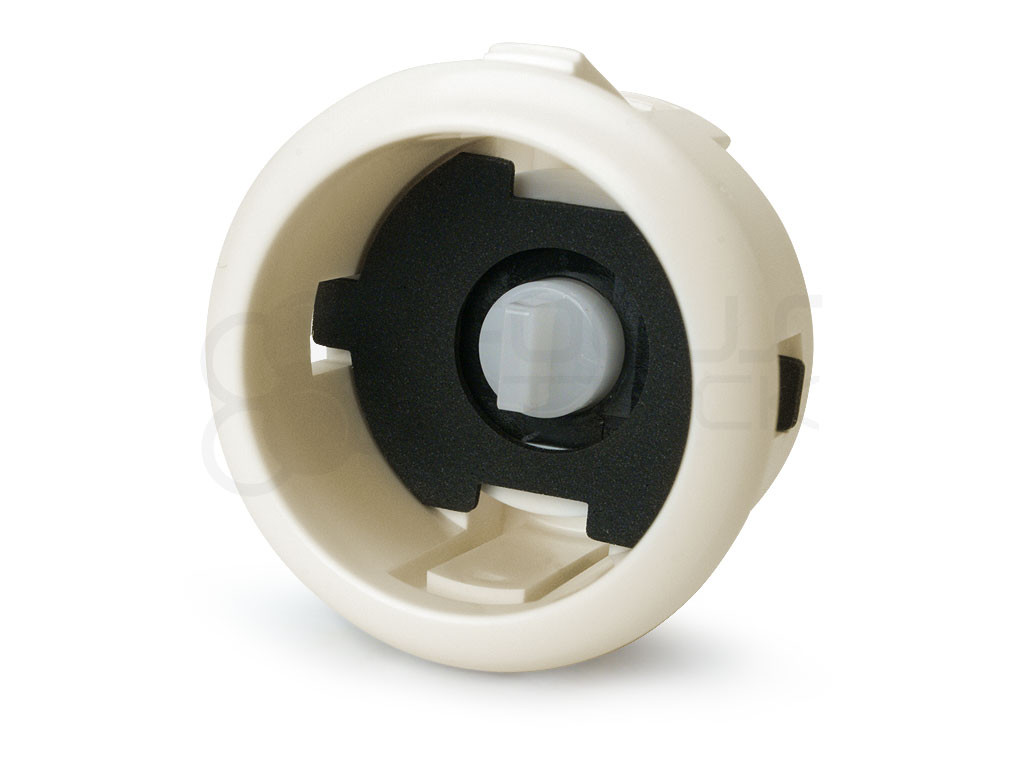
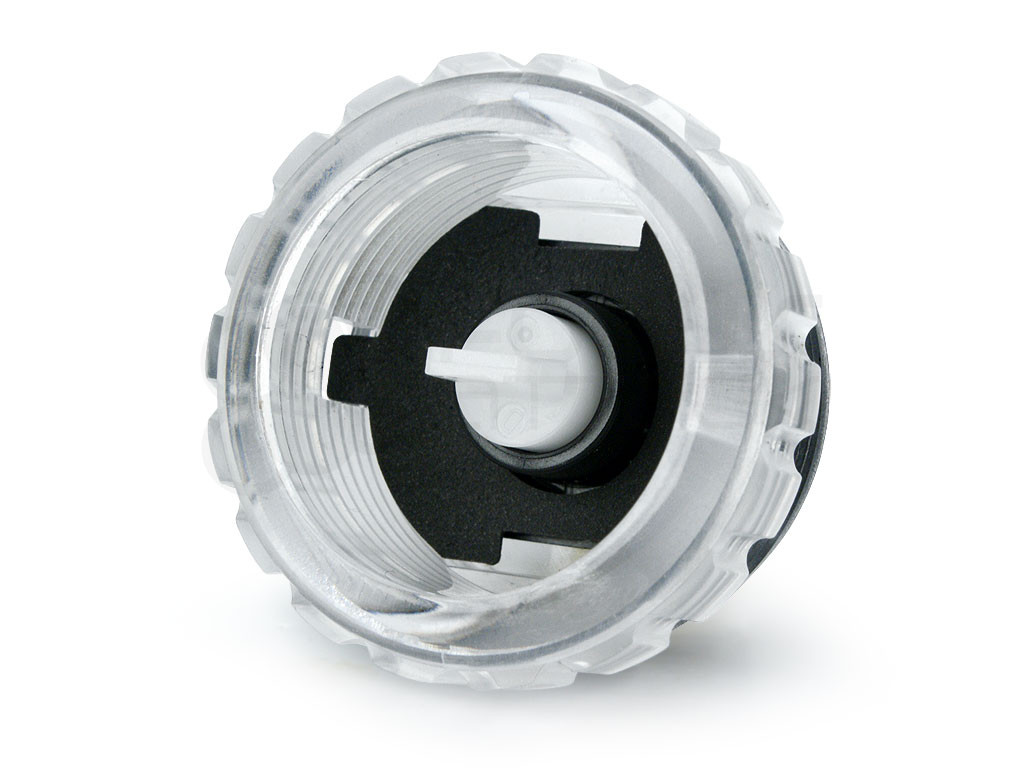
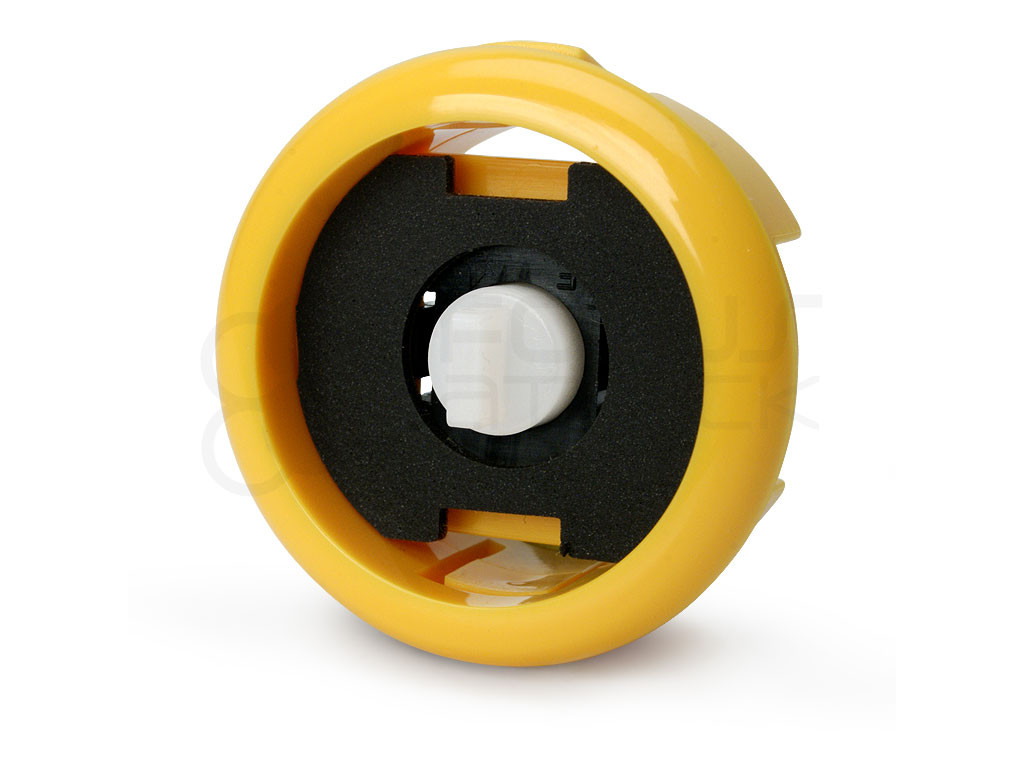
Silencer is our 1mm-thick foam washer that helps to dampen the loud sounds common with tapping on the button plunger. It conforms to the internal housing of many Sanwa or Seimitsu-style 30mm pushbuttons.
Known compatibility:
Sanwa Seimitsu Crown Hori Silencer Installation
installing the Silencer foam pads into a Sanwa or Seimitsu pushbutton is straightforward. Place the washer - plastic film side down - into the button housing. Align the small tabs so that they stick out of the holes on each side of the housing. For Seimitsu PS-15, and Hori Hayabusa low profile pushbuttons, snip the tabs off with scissors and place into the housing.
24 vs 30mm When processing orders, a frequent mistake we found among new players is choosing the wrong size for action buttons, such as punch and kick.
Within the fighting game genre, Japanese arcade buttons commonly consist of two diameter sizes: 24 millimeter and 30 milllimeter (mm). In most configurations, 30mm represents your action button. These are front facing, appearing most prominent on your Fightstick control panel. Option button, such as "Start", "Select", or more recently "Option", "Touch", or "Share" are usually 24mm.
UPDATE: Owners of Neo Geo AES Joysticks will need 24mm pushbuttons instead of 30mm (Thanks SRK's DEZALB)
Below is a visual representation of a common Fightstick control panel. Throughout this article, we will mark 24mm in green, and 30mm in Orange.
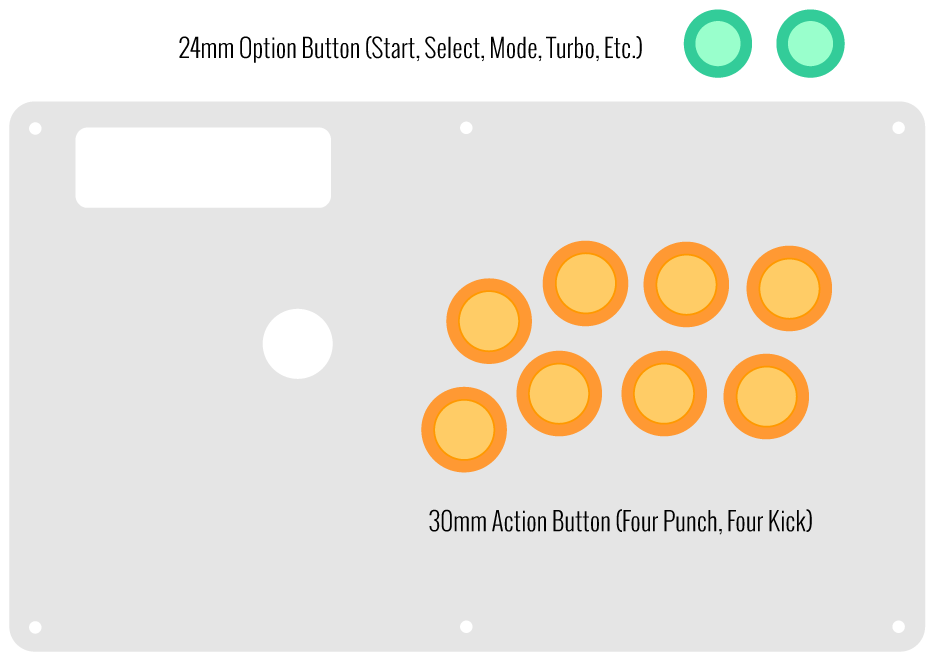
Checking the Proper Size
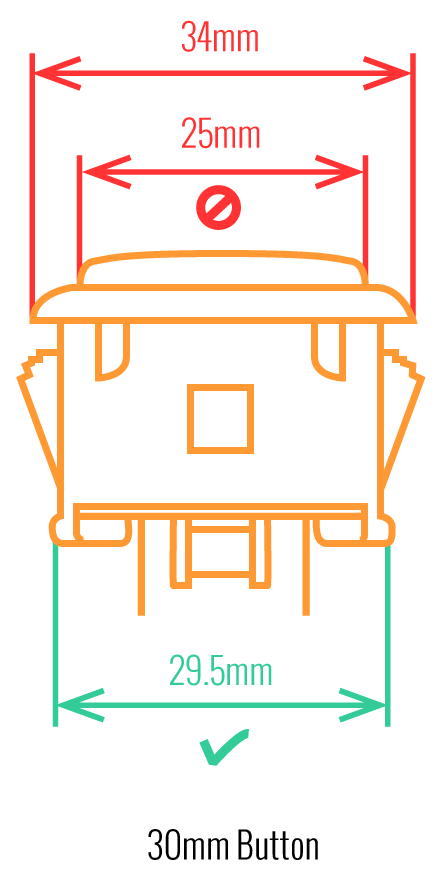 Another way that players can misinterpret the pushbutton size is by measuring the pushbutton plunger. Have a look at the diagram at right.
Another way that players can misinterpret the pushbutton size is by measuring the pushbutton plunger. Have a look at the diagram at right.The plunger - the part that you press down to represent an input - is 25mm or a bit smaller in most 30mm pushbuttons. Often this leads to the conclusion that one needs a 24mm button and not 30mm.
Similarly measuring the button rim can lead to confusion, as it is intentionally larger than the button hole it is placed in. You don't want to use these measurements. Instead, review the button housing diameter, or the hole the button will be placed in. You can do this with a caliper - a digital caliper is often quite helpful for this and other arcade-related projects.
Control Panel Configuration
Most Fightsticks from MadCatz, Hori, Qanba, and similar will use these two sizes. How the buttons are used will depend on the model joystick that you own. Over time, we'll provide example configurations for specific popular Fightstick models and arcade cabinets using the color key for 24mm (green) and 30mm (orange). We'll also expand the key for future models if another size is introduced, and we offer for sale.
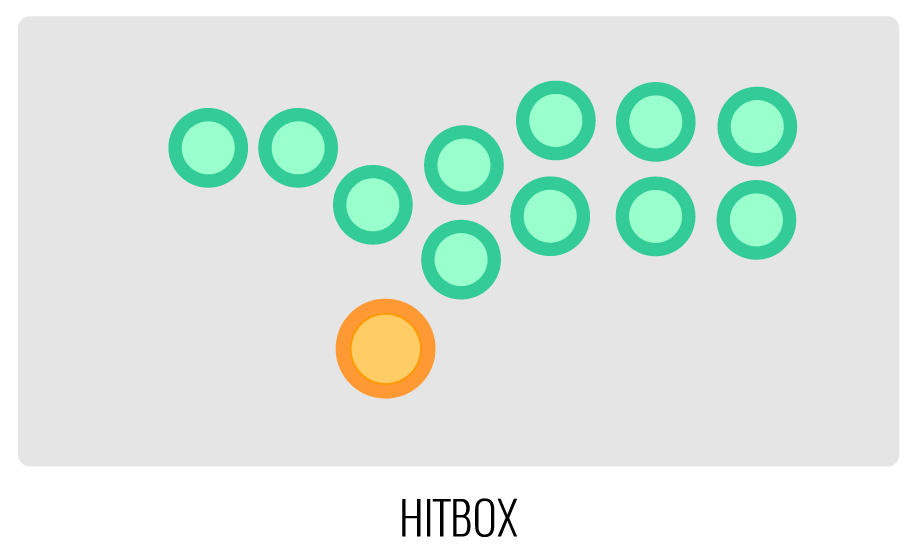
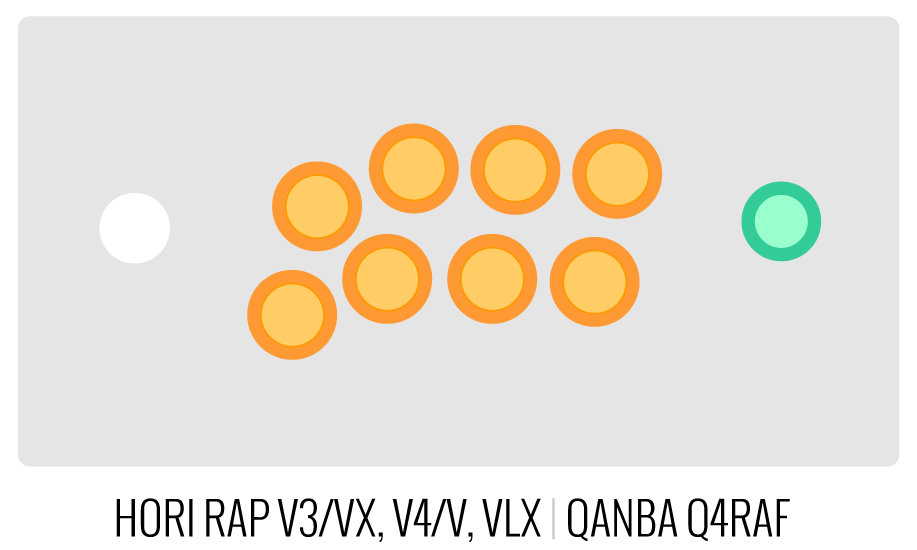
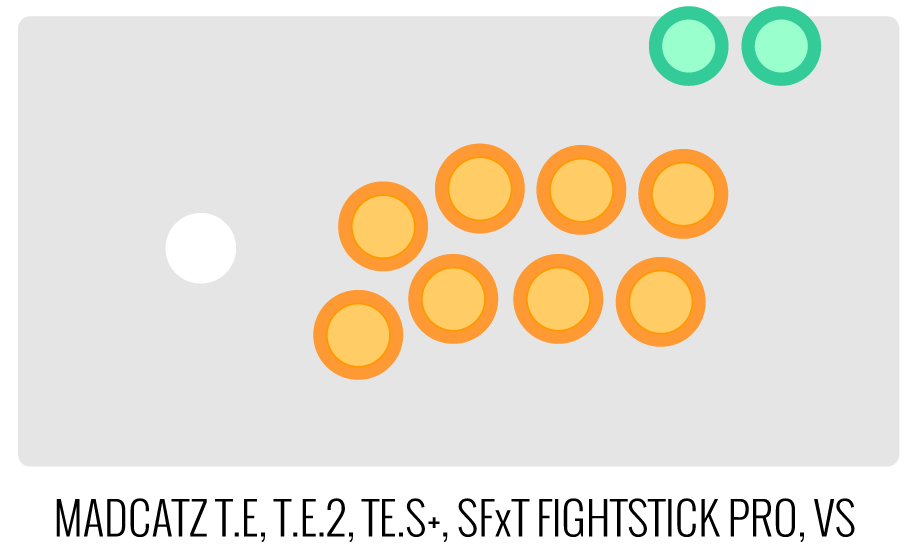
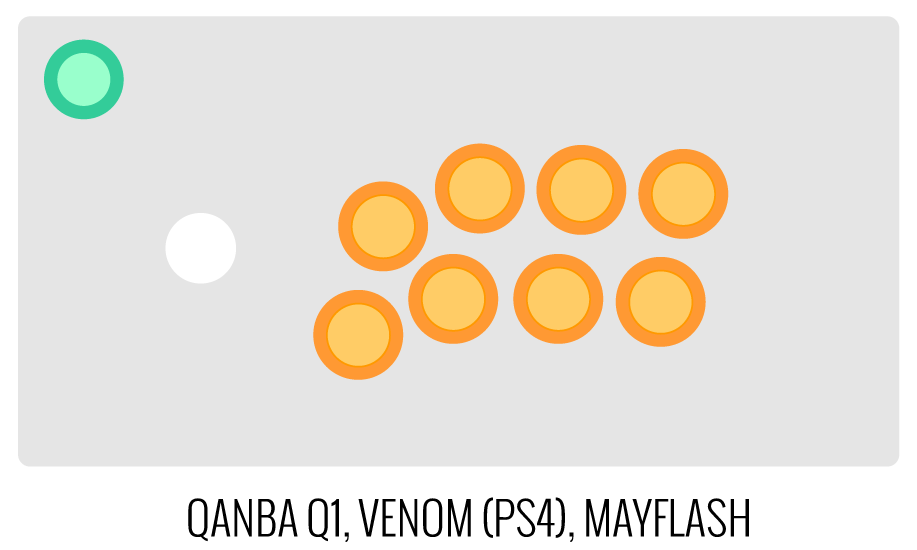
-
Product Reviews
-
The perfect in between
Sanwa is viewed as the standard. And I would agree for shmups and Casual play. They're light and fluffy. Seimitsus are more Hardy and robust. They take more Force to activate, and they bounced back ever so quicker. So I feel like it's a better competitive/responsive product. I would compare it more to a Crown Cherry MX button then a sanwa. Which is a good thing. Ted on Jun 25th 2019
-
-
Find Similar Products by Category


